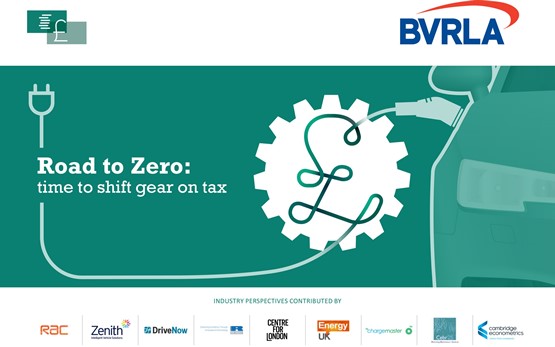Nine organisations representing economists, fleets, motorists, the automotive industry, energy providers, and local government are calling for a new policy on motoring taxation.
Contributing to a new BVRLA report – Road to Zero: time to shift gear on tax – together, they warn that the advent of increasingly connected, electric and shared road transport presents challenges and opportunities for future Government motoring tax policy.
They point to the impending decline in revenues from the current CO2 emissions-based regime and highlight the potential for a new tax system that could help tackle devolved transport priorities including urban air quality and congestion.
The report, which was also endorsed by leading MPs, reveals consistent findings and attitudes among its contributors, including how new technologies present an opportunity to develop a fairer and more sophisticated tax system that could be based on distance travelled, time of journey, location or air pollution.
It also says that Government taxes and incentives need to give fleets and motorists a clearer and more consistent long-term message that investing in plug-in electric vehicles will bring economic benefits.
Furthermore, it says that the Treasury needs to protect future motoring tax receipts as drivers move to electric vehicles and CO2 -based income declines – by up to £2bn per year.
The BVRLA says it wants the report to stimulate a dynamic discussion between drivers, the automotive supply chain and policymakers about creating a tax system fit for the future.
BVRLA chief executive Gerry Keaney said: “Time to Shift Gear on Tax is the first report of its kind, bringing together a host of policy perspectives and ideas that all demonstrate the urgent need for vehicle tax reform. We thank all our partners for their brilliant contributions.
“Fuel duty, VED and Company Car Tax have been successful in driving down carbon emissions. Now it is time to go back to the drawing board and explore how the fiscal regime could also make roads safer, less congested and fit for the future.”
Building on the report, most of the contributors have also co-signed a letter to the Chancellor, calling on the government to:
- Commission an independent and wide-ranging review into the modernisation of the motoring tax system for a zero-emission future.
- Focus on delivering a fair, transparent and adaptable national motoring tax regime capable of funding the UK road network and driving behaviour change that reduces congestion and air pollution.
- Develop a national road-user charging policy that can support cities and regions if they choose to implement local motoring charging schemes.
 BVRLA says it wants the report to stimulate a dynamic discussion between drivers, the automotive supply chain and policymakers
BVRLA says it wants the report to stimulate a dynamic discussion between drivers, the automotive supply chain and policymakers
Keaney continued: “We want the report to kick-start a process of change, with industry working with the Treasury. A taskforce with the kind of expertise shown in the report will help drive this forward.
“The exciting vision set out by the Government’s Road to Zero Report and Industrial Strategy demonstrates that transport is a priority. UK policymakers have been busy creating the right infrastructure and regulatory environment for connected, autonomous and electric cars. Now is the time to look at tax.”
The UK Parliament’s two leading environmental watchdogs helped develop the report, with Labour MP Mary Creagh, and Tory MP Neil Parish also giving their take on the Government route to achieving the Government’s own green ambitions.
Road to Zero: time to shift gear on tax can be downloaded on the BVRLA website.






















Login to comment
Comments
No comments have been made yet.